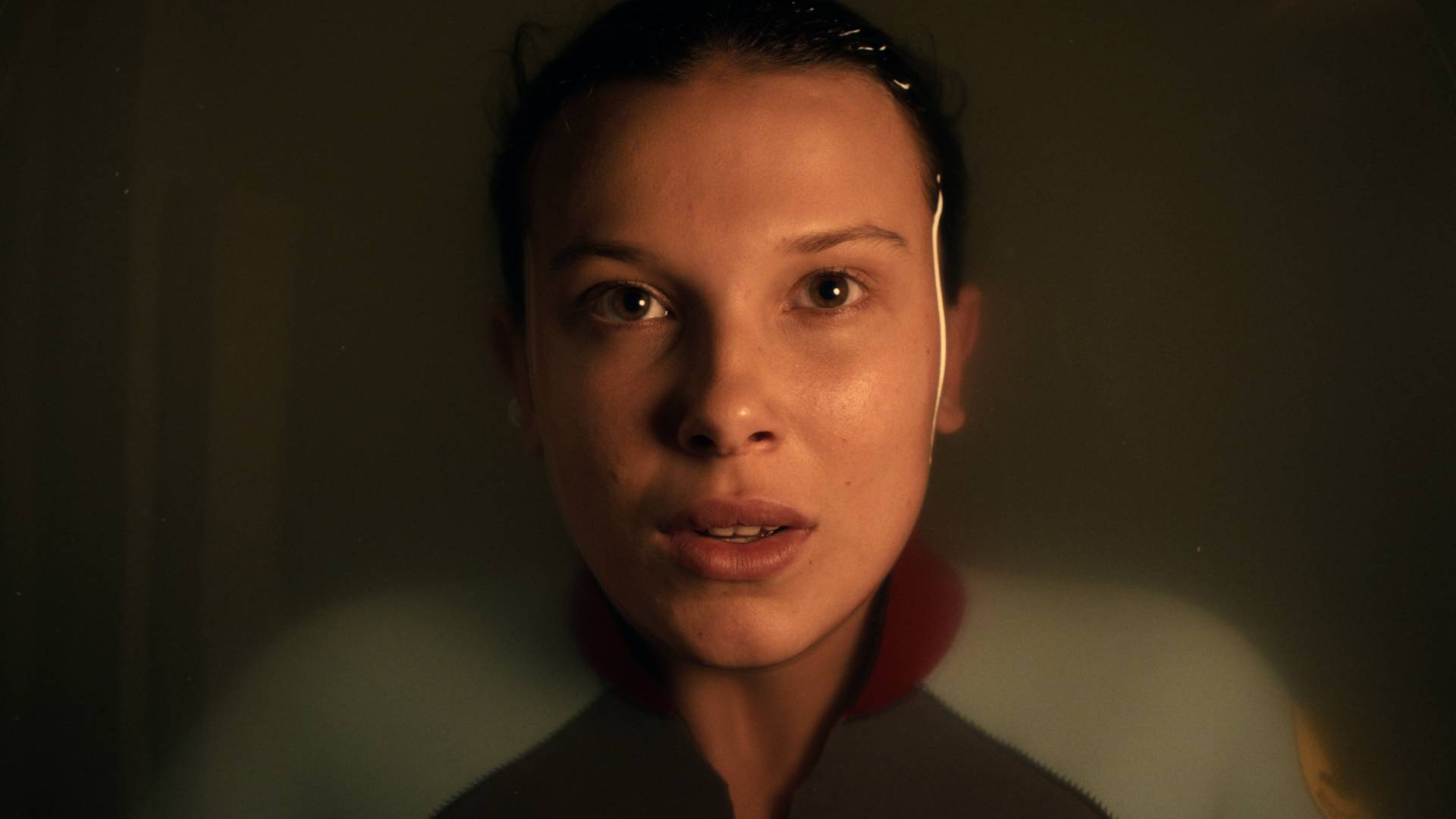Agatha All Along episode 7 breaks new ground for the MCU by delivering a magic Marvel take on the best Stephen King adaptation to date
Opinion | It really does feel like forever since Marvel has been this good
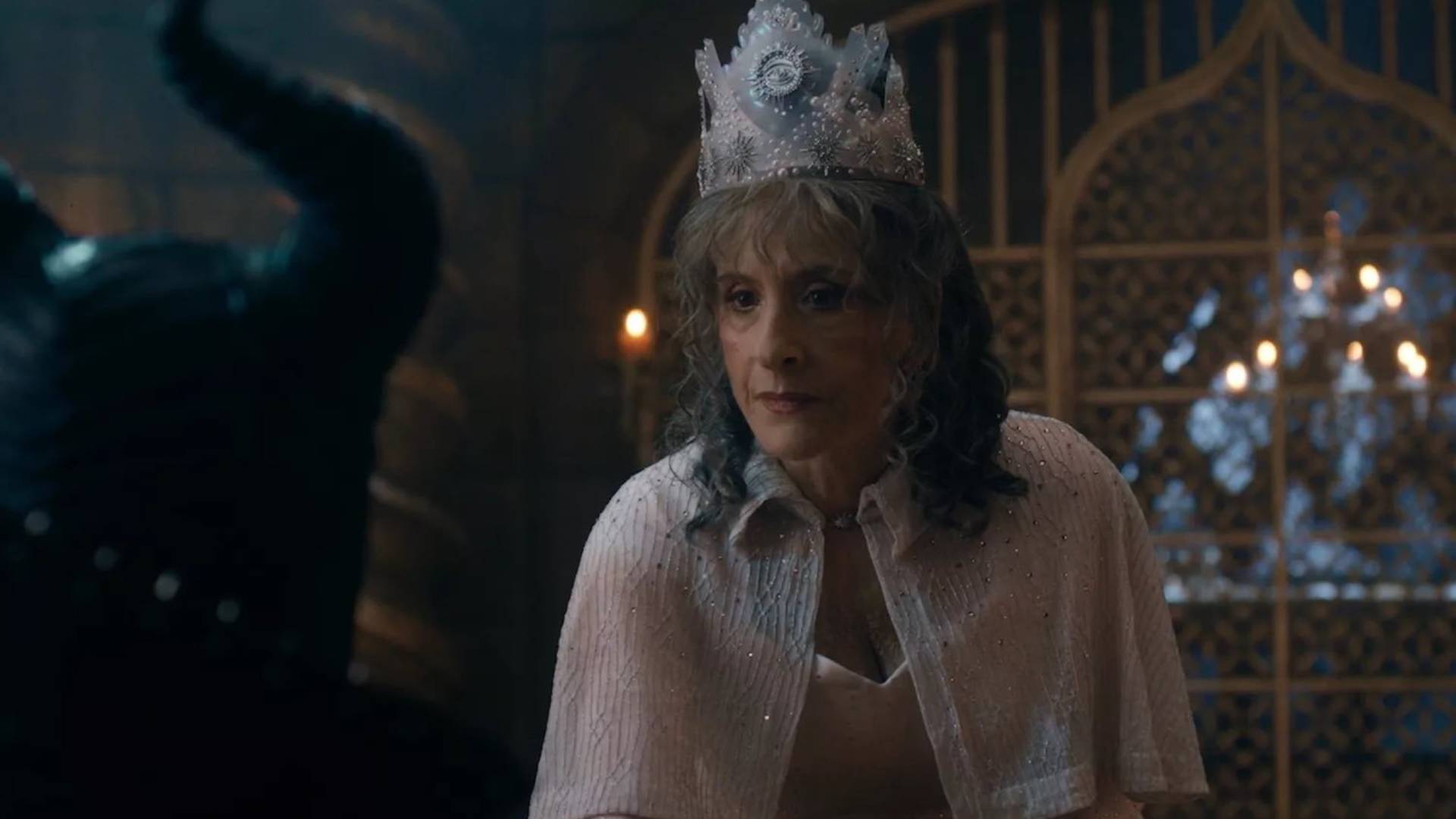
Warning! This article contains major spoilers for Agatha All Along episode 7, so turn back now if you haven't seen it yet...
It feels like forever since Marvel has been this good. That's what first comes to mind when the credits roll on Agatha All Along‘s seventh episode, 'Death’s Hand In Mine'.
Although this might sound like a rather backward way to start discussion of the chapter at hand, it's actually rather fitting to kick things off "close to the end". This is an episode that's out of time, evoking other twisty time-travel stories of the past – including one of the best that horror icon Stephen King never told…
Timey-wimey
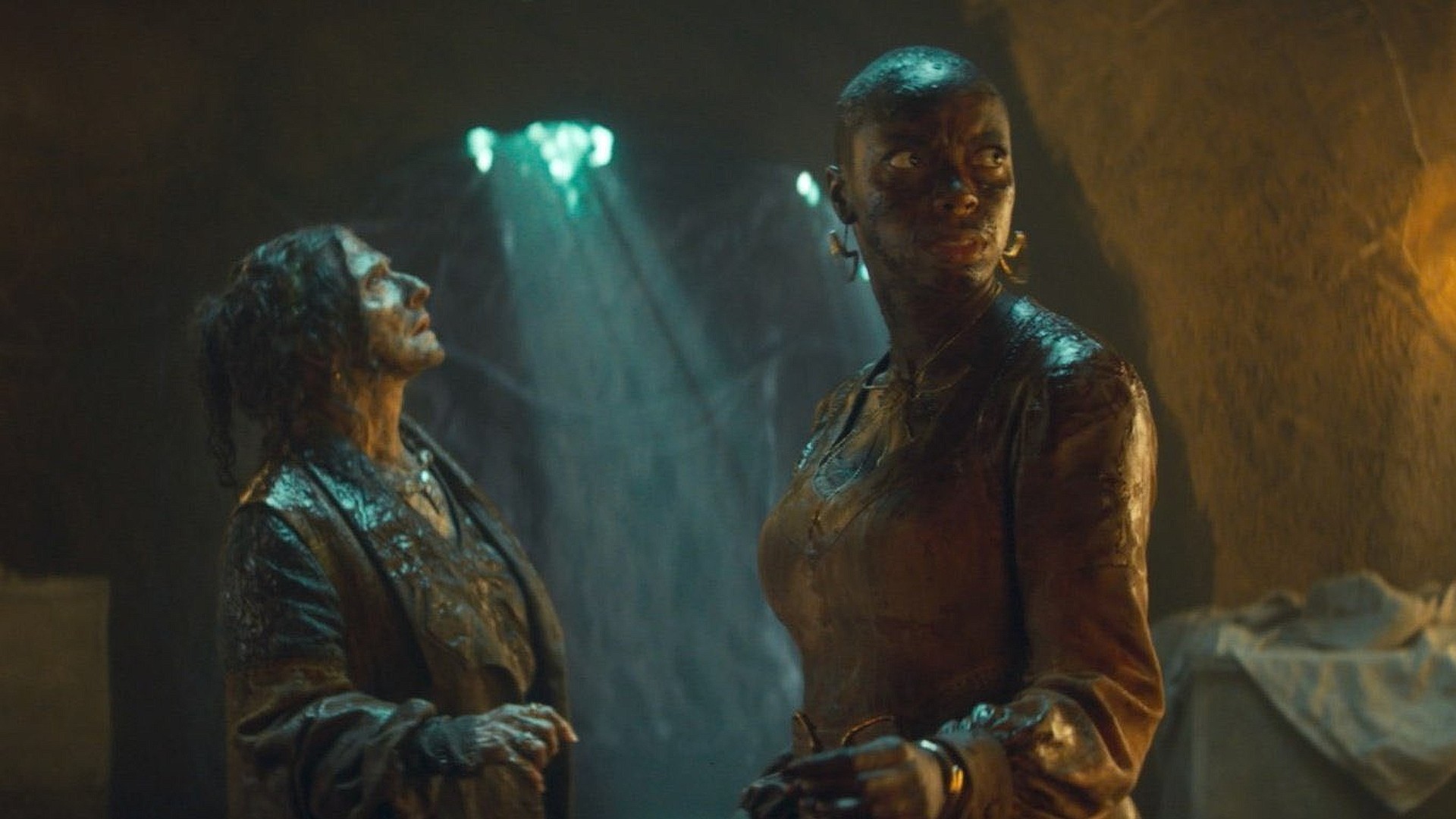
Agatha's coven fights against an ever-dwindling clock this week that brings them one step closer to the end of the road (and therefore the end of the show). But more importantly, the narrative itself is also out of time: a slippery, nonlinear beast which jumps back and forth between the past and the present, skipping seconds, minutes, and even centuries in the blink of an eye.
The eye in question belongs to the seer of the group, Patti Lupone's Lilia Calderu, who faces the end from the moment this episode begins. In a void devoid of context, Lilia falls into a black abyss, her limbs flailing. Is this a vision of the future or simply what happened after Teen threw her and Jen down into the mud a couple of episodes prior? Perhaps both or neither of these explanations ring true because it turns out Lilia herself is both present and absent all at once as her consciousness hurtles through time beyond her control.
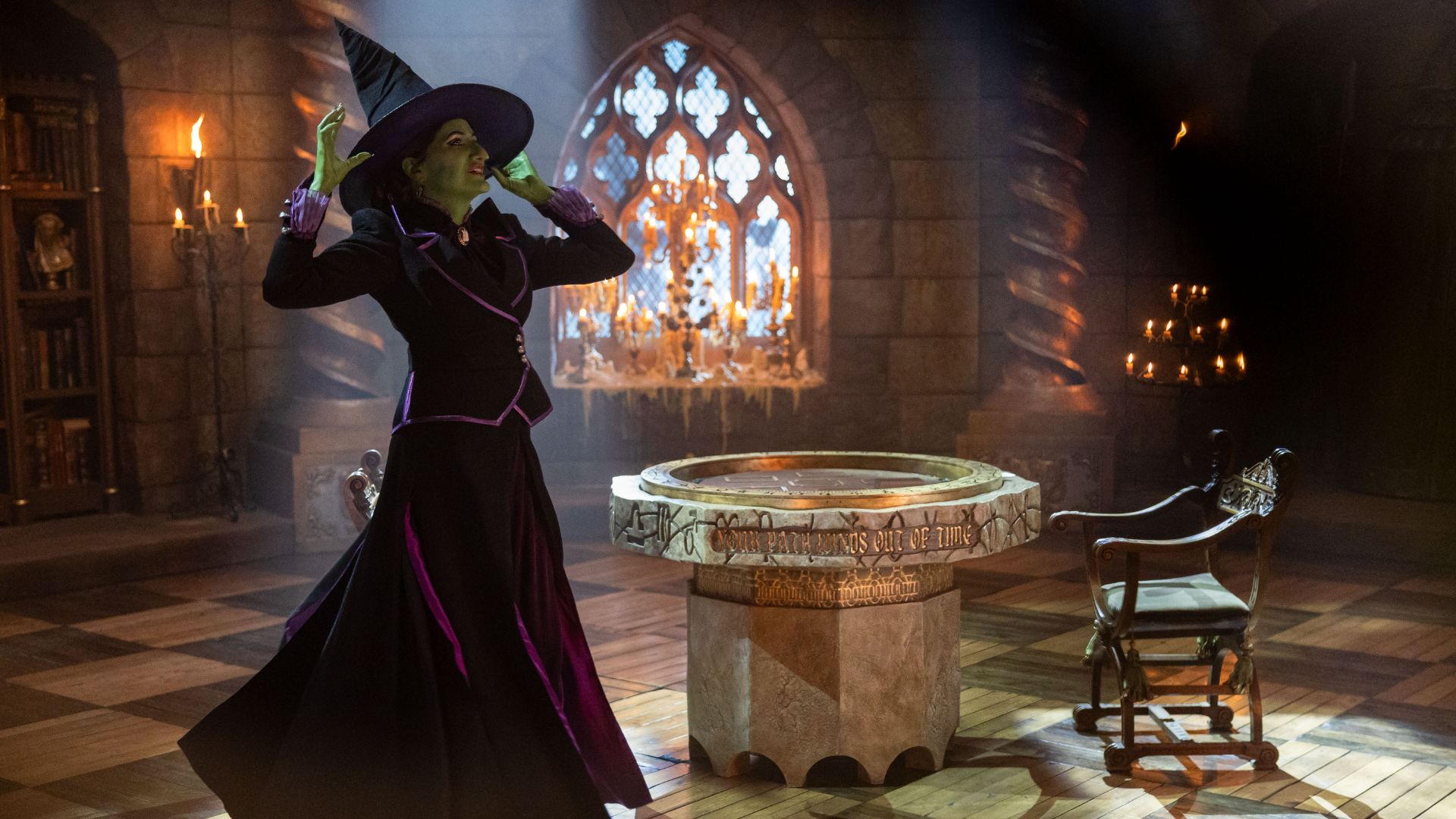
Here's all of the Agatha All Along Easter eggs you may have missed so far
This is why Lilia sometimes acts strange, why she utters disjointed phrases and then fails to recall them just moments later. It's the reason she often sees or reacts to things no one else can see or hear and it's not a question of sanity or ageing. It's because Lilia has briefly arrived in her body from another stage in her life. Showrunner/director Jac Schaeffer deftly reinforces this by shifting scenes out of order, purposely throwing us into the middle of conversations before thrusting us back and forth into other times and settings. In effect, we are Lilia now too.
Amidst all the time-hopping, Lilia jumps back to the beginning, a few centuries ago to her own childhood, where she's seated across from an old Sicilian woman who knows exactly what's going on. "You are visiting, eh?," she asks old Lilia in young Lilia's body. "How long has it been?"
Bringing all the latest movie news, features, and reviews to your inbox
What seems unhinged to the rest of the coven, and even us as viewers, is perfectly normal for Lilia's teacher who's well aware of how disorientating it can be to experience snippets of reality out of order. Because as this episode reveals: "The flow of time is an illusion."
Defying time (and gravity)

Agatha All Along isn't the first story to play around with this idea. In recent years, both Watchmen’s Doctor Manhattan and Nell from The Haunting of Hill House have followed a similar nonlinear path through their lives, not to mention various characters in sci-fi ventures like Doctor Who and Star Trek. But the one that Agatha All Along evokes most clearly, the one it owes the clearest debt to, is Castle Rock. Or more specifically, the seventh episode of season 1, where Hulu's underrated gem proved itself to be so much more than just another tribute to horror writer Stephen King.
Throughout the first seven episodes, Castle Rock revolved around Bill Skarsgård's character, a mysterious being who had been holed up for years in Shawshank Prison before escaping to wreak havoc on the show's titular town. But the heart of Castle Rock had nothing to do with him. The heart of that show was Ruth Deaver, a matriarch whose struggle with dementia unlocked dark secrets in the town and a few tears from us, the viewers, who were left heartbroken by the toll this disease takes on her mind.
This all came to a head in episode 7, titled 'The Queen', where Ruth – played tenderly by a never-better Sissy Spacek – finally took center stage. In the first (and best) adaptation of Stephen King's Carrie, Spacek fought back against the bullies who ruined her life, but in Castle Rock, Spacek fought for life itself, desperately clinging onto reality as her past and present shifted under foot like a manic chess game she had no control over.
In fact, Ruth actively used chess pieces gifted by her late lover, Alan Pangborn, to try and anchor her reality, grabbing onto them tight as she pulled herself out of the past which swirled around and through her like a storm. Just as Lilia is pulled to earlier times, only to find her way out through tea leaves back into the present and even the future, Ruth kept slipping back into life-defining moments that changed her perspective, even if she herself could no longer change these events – despite how real they seemed in what felt like her present.
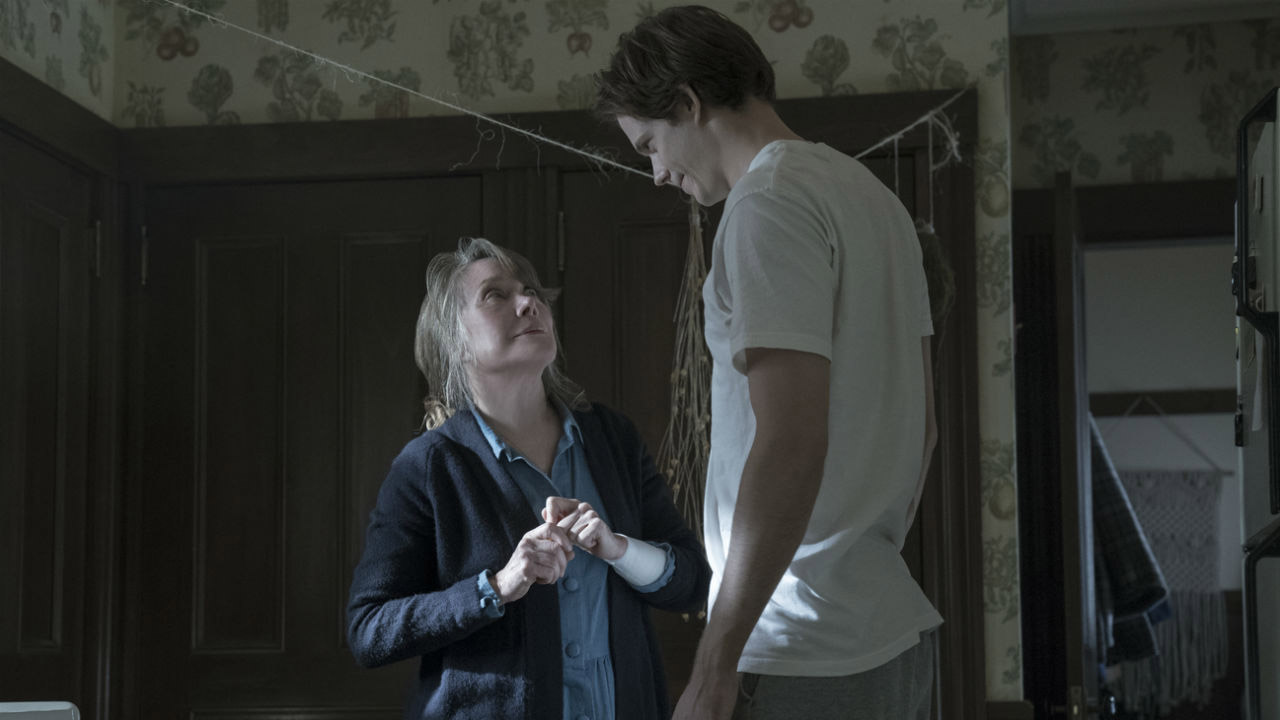
In both examples, Lilia and Ruth fight to find meaning in the fragments of life they experience firsthand. But both end in tragedy. Ruth, temporally unmoored and painfully confused, fends off Skarsgård's malevolent entity with a gun only to realize that she's accidentally shot and killed Alan instead, the one true love of her life. Lilia also succumbs to death – her own – by reversing the tower at the end of episode 7 so it flips upside down, sending her, and the Salem Seven who have been chasing the coven, to their deaths.
We leave them both falling, Lilia defying gravity in her Glinda-inspired dress while Ruth fell back into time itself, close to the end and the beginning all at once…
Yet neither story is entirely hopeless or bereft of joy. Fleeting moments of happiness were scattered throughout the corridors of Ruth's — a laugh with her lover or storytime with Henry — before she succumbed to the comfort of a still-living Alan in the fuzzy, cotton-wool world of her dementia. For Lilia, it's empowering to watch her take back control and embrace destiny in Agatha All Along through her noble sacrifice, thereby saving the coven while bringing back meaning to her life.
Whether Agatha All Along is a poignant homage to Castle Rock or a more liberal borrowing of Ruth's narrative journey is irrelevant. 'Death’s Hand In Mine' and 'The Queen' are exceptional episodes of TV in their own right, both serial and stand-alone masterpieces in each of their respective shows, connected yet entirely separate. So it doesn't really matter which came first. Which is just as well, because "the flow of time is an illusion." Yet even so, it really does feel like forever since Marvel has been this good.
Agatha All Along episodes 1 to 7 are streaming now. Ensure you don't miss an episode with our Agatha All Along release schedule.
And for more on the wider MCU, check out our guide to all of the upcoming Marvel movies and shows or get up to speed with our breakdown of the Marvel timeline.

With ten years of online journalism experience, David has written about TV, film, and music for a wide range of publications including Indiewire, Paste, Empire, Digital Spy, Radio Times, Teen Vogue and more. He's spoken on numerous LGBTQ+ panels to discuss queer representation and in 2020, he created Digital Spy's Rainbow Crew interview series, which celebrates queer talent on both sides of the camera via video content and longform reads. Passions include animation, horror, comics, and LGBTQ+ storytelling, which is why David longs to see a Buffy-themed Rusical on RuPaul's Drag Race.


